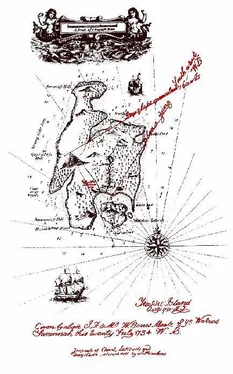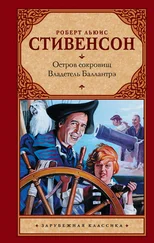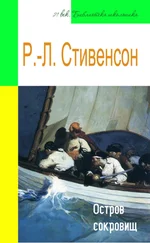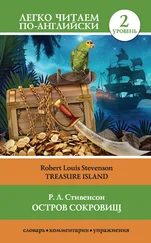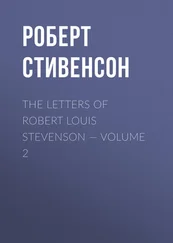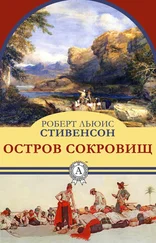2. 'Drunk or raving (пьяны или бредят), said he.
liberty [`lIbqtI] privileged [`prIvIlIG] unwearying [An`wIqrIN] politeness [pq`laItnIs] ingratiate [In`greISIqIt] treachery [`tretSqrI]
1. 'All drunk, sir, struck in the voice of Silver from behind us. Silver, I should say, was allowed his entire liberty, and, in spite of daily rebuffs, seemed to regard himself once more as quite a privileged and friendly dependant. Indeed, it was remarkable how well he bore these slights, and with what unwearying politeness he kept on trying to ingratiate himself with all. Yet, I think, none treated him better than a dog; unless it was Ben Gunn, who was still terribly afraid of his old quartermaster, or myself, who had really something to thank him for; although for that matter, I suppose, I had reason to think even worse of him than anybody else, for I had seen him meditating a fresh treachery upon the plateau. Accordingly, it was pretty gruffly that the doctor answered him.
2. 'Drunk or raving, said he.
1. 'Right you were, sir (правильно, сэр), replied Silver (ответил Сильвер); 'and precious little odds which, to you and me (и весьма мало разницы, что с ними, для нас с вами).
2. 'I suppose you would hardly ask me to call you a humane man (полагаю, вы едва ли попросили бы меня назвать вас гуманным = не претендуете на звание сердечного человека), returned the doctor, with a sneer (ответил доктор с насмешкой), 'and so my feelings may surprise you, Master Silver (так что мои чувства могут удивить вас, капитан Сильвер). But if I were sure they were raving (но если бы я был уверен, что они бредят) — as I am morally certain one, at least, of them is down with fever (а я, в сущности, уверен, что один из них, по крайней мере, лежит в лихорадке) — I should leave this camp, and, at whatever risk to my own carcase (я бы покинул этот лагерь и, каким бы ни был риск моему собственному каркасу /телу/ = даже рискуя жизнью), take them the assistance of my skill (оказал бы им врачебную помощь; skill — искусство, умение, ловкость, навык ).
3. 'Ask your pardon, sir, you would be very wrong (прошу прощения, сэр, вы были бы очень неправы), quoth Silver (промолвил Сильвер; quoth — сказал, промолвил /уст./ ). 'You would lose your precious life, and you may lay to that (вы бы /только/ потеряли свою драгоценную жизнь, уж это точно). I'm on your side now, hand and glove (я теперь на вашей стороне, всей душой: «рука и перчатка»; hand and glove — очень близко, в тесной связи ); and I shouldn't wish for to see the party weakened, let alone yourself (и я не хотел бы видеть, как отряд ослабеет, не говоря уж о вас = а особенно было бы жалко вас; let alone — не говоря, не считая ), seeing as I know what I owes you (особенно же учитывая, чем я обязан вам). But these men down there, they couldn't keep their word (но эти люди внизу, они не смогли бы сдержать свое слово) — no, not supposing they wished to (нет, даже если предположить, чтобы они хотели этого; to suppose — предполагать, допускать, думать ); and what's more, they couldn't believe as you could (и, более того, они не смогли бы поверить, что вы смогли бы /держать слово/).
precious [`preSqs] humane [hju`meIn] carcase [`kRkqs] quoth [kwquT]
1. 'Right you were, sir, replied Silver; 'and precious little odds which, to you and me.
2. 'I suppose you would hardly ask me to call you a humane man, returned the doctor, with a sneer, 'and so my feelings may surprise you, Master Silver. But if I were sure they were raving — as I am morally certain one, at least, of them is down with fever — I should leave this camp, and, at whatever risk to my own carcase, take them the assistance of my skill.
3. 'Ask your pardon, sir, you would be very wrong, quoth Silver. 'You would lose your precious life, and you may lay to that. I'm on your side now, hand and glove; and I shouldn't wish for to see the party weakened, let alone yourself, seeing as I know what I owes you. But these men down there, they couldn't keep their word — no, not supposing they wished to; and what's more, they couldn't believe as you could.
1. 'No, said the doctor (сказал доктор). 'You're the man to keep your word, we know that (/зато/ вы человек /чтобы держать/ слова, мы это знаем).
2. Well, that was about the last news we had of the three pirates (это, пожалуй, последние новости, которые мы имели о трех пиратах = больше мы ничего о них не знаем). Only once we heard a gunshot a great way off (только однажды мы услышали ружейный выстрел вдалеке), and supposed them to be hunting (и решили, что они охотятся). A council was held, and it was decided that we must desert them on the island (было проведено совещание, и было решено, что мы должны оставить их на острове) — to the huge glee, I must say, of Ben Gunn (должен сказать, к огромной радости Бена Ганна; glee — веселье, ликование ), and with the strong approval of Gray (и с сильным одобрением Грея). We left a good stock of powder and shot (мы оставили /им/ большой запас пороха и пуль; stock — запасы, ассортимент, сырье ), the bulk of the salt goat, a few medicines (груду соленой козлятины, немного лекарств; bulk — груда, масса, большое количество ), and some other necessaries, tools, clothing, a spare sail (и некоторые другие необходимые вещи, инструменты, одежду, запасной парус), a fathom or two of rope, and, by the particular desire of the doctor, a handsome present of tobacco (пару саженей веревки и, по особому желанию доктора, значительную порцию табака; present — подарок ).
3. That was about our last doing on the island (это были, пожалуй, наши последние действия на острове). Before that, we had got the treasure stowed (перед этим мы погрузили сокровища), and had shipped enough water and the remainder of the goat meat, in case of any distress (и погрузили достаточно воды и остатков козлятины на всякий случай; to ship — грузить /на судно/, перевозить; distress — нужда, горе, бедственное положение ); and at last, one fine morning, we weighed anchor (наконец, в одно прекрасное утро, мы подняли якорь), which was about all that we could manage (что было, пожалуй, всем, что мы могли сделать; to manage — управлять, владеть; суметь, справиться ), and stood out of North Inlet (и вышли из Северной бухты; to stand out — удаляться от берега, отходить ), the same colours flying that the captain had flown and fought under at the palisade (/над нами/ развевался тот же самый флаг, под которым капитан /и все мы/ сражались /защищая/ крепость).
Читать дальше
Конец ознакомительного отрывка
Купить книгу
